Grounds
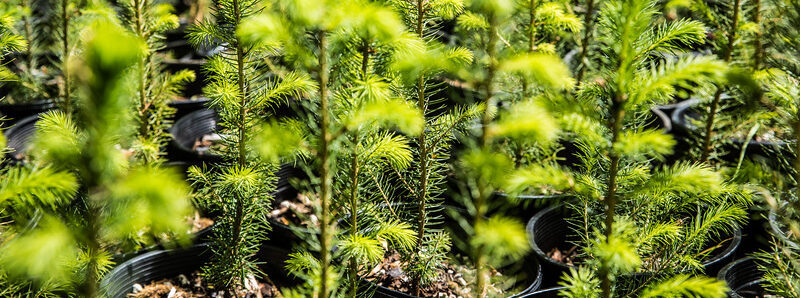
We are committed to landscaping and grounds practices that are beneficial for the environment and healthy for the people who spend time on campus. Grounds maintenance is perhaps the primary and signature component of UW Bothell’s sustainable practices. Whether they are composting our food waste, organically managing our campus landscape, creatively managing unwanted pests, restoring our wetland or planting edible plants for harvest, our campus Grounds team are some of the most ardent supporters and practitioners of sustainability at UW Bothell.
Here are some of the ways that we are working towards sustainability through our grounds and landscaping practices:
On-site compost
In addition to our triple-bin waste stations that get commercially composted by Recology, we compost food and landscaping waste on-site!
- At the campus farm site, the grounds team maintains a vermicomposting bin filled with red wriggler worms.
- Take some red wriggler worms home! Want to start your own vermicomposting bin? Email uwbsust@uw.edu to take a container of our UW Bothell worms home to get started!
- The Grounds team also maintains series of yard waste compost stations that are turned and kept moist. This is where the majority of the yard waste from campus operations gets processed, and all of it gets returned to the earth within the campus boundaries.
Organic Land Care
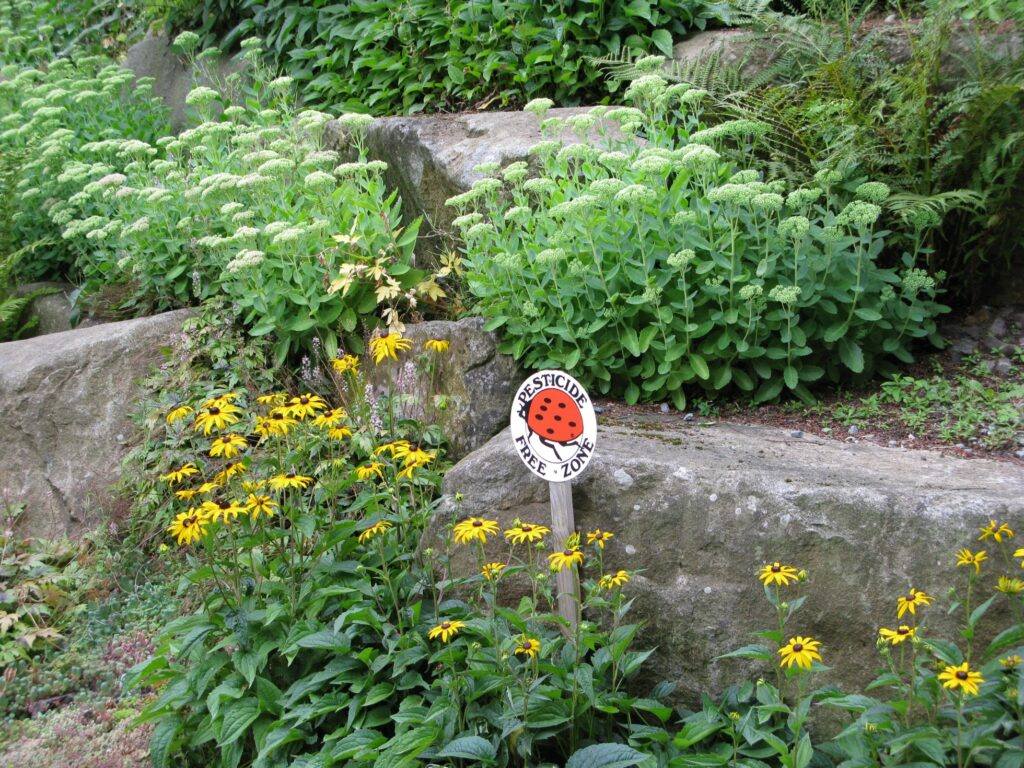
- Our campus has been pesticide and synthetic fertilizer free since 2006.
- The grounds team practices organic land care throughout all campus grounds operations, including maintenance of the 58 acres restored North Creek wetland.
- Pesticide free initiatives include a robust integrated pest management policy and practice, and permaculture management. By intentionally building healthy soil and biotic communities we ensure that plant life on campus can thrive without the use of added synthetic fertilizers.
- UW Bothell achieved Salmon-Safe Certification in 2008, and was the second campus in the nation to do so.
- In 2023 UW Bothell received a Platinum Green Grounds certification from re:wild your campus, a conservation organization dedicated to rewilding the planet.
- Fertilizer application records:
Integrated Pest Management
- UW Bothell implements a robust integrated pest management (IPM) program as a key part of its commitment to a pesticide-free campus and as a condition of maintaining our Salmon-Safe Certification.
- IPM policy for UW Bothell states that students and employees have a right to a healthy learning and working environment and that campus will work to achieve this, in part, by reducing and eliminating the use of pesticides and other hazardous chemicals through the use of Integrated Pest Management practices in grounds and buildings management.
- Per our IPM policy, pesticides are only used as a last resort for pest problems and use of high-hazard pesticides is completely restricted, with very limited exceptions.
- Included in our unique IPM policy are practices to ensure invasive species are properly managed by avoiding introduction onto campus.
- The IPM program requires that all application of pesticides are recorded and tracked, which is included as part of the evidence required for Salmon-Safe Certification. Find our pesticide application records below:
North Creek Wetland
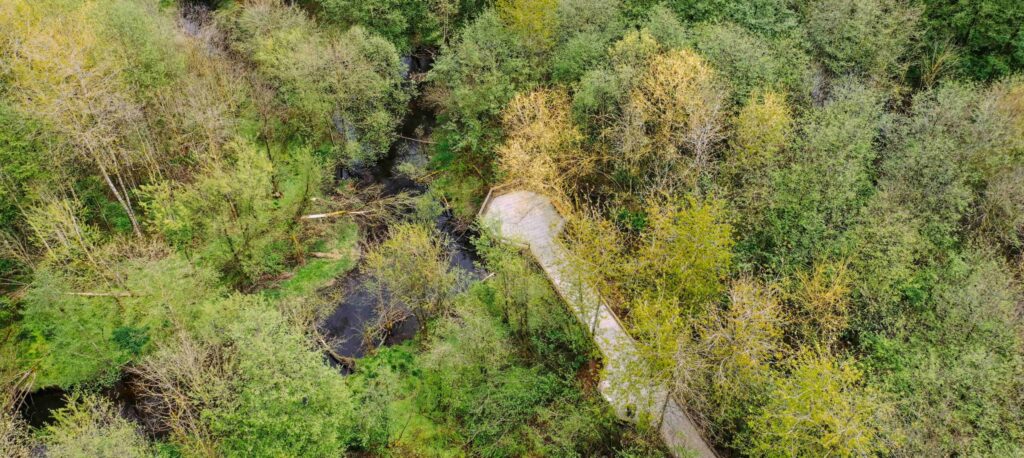
The UW Bothell campus houses one of the largest and most successful floodplain restorations in Washington State. This regionally-renowned ecological restoration project reconstructed the lower part of the North Creek stream channel and 58 acres of pastureland to a sustainable, functioning floodplain ecosystem within an urbanizing watershed. This project began in 1997 with the construction of campus, formerly an active cattle ranch, and was led in partnership with many professors who work and perform research at the campus.
- Two full-time staff employees (plus additional seasonal workers in the summer) continually and intentionally maintain the area, including replanting, removing invasives, monitoring and gathering data, and adapting management plans to the needs of the area.
- The wetland has created a thriving habitat for salmon and for many other critters and creatures, while also creating natural filtration for storm water run-off before it ultimately reaches the Puget Sound.
Learn more about the North Creek Wetland.
Edible Campus
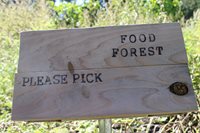
Edible food and herbs are incorporated into the landscape throughout UW Bothell. Some places where edibles on-campus can be found include:
- The Cascadia College Food Forest, which features diverse fruits and vegetables from all around the world
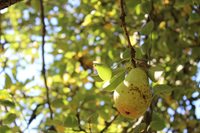
- The Campus Farm, a space that holds ten raised beds for both extra curricular and curricular use, which is located between the sports fields and the north parking garage
- The Apple Orchard, located next to the Chase House on the south end of campus
- The Herb Walk, located along the roadside and sidewalk along 180th street on the south end of campus.
- The Truly House garden and fruit trees, located along 11th Ave NE, behind Discovery hall.
- Learn more about the student project to bring fruit trees to the Truly House.
Our Grounds team designs and maintains all of these landscapes, and we encourage the campus community to explore, taste and engage with these areas. When foraging, make sure you are absolutely certain you know what you’re eating and that it’s safe. Remember to only take a little and leave some for others—including wildlife!
